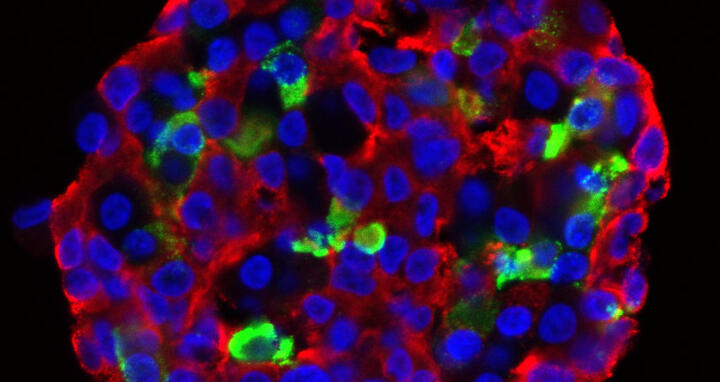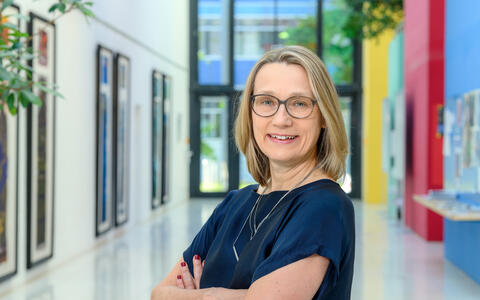Maike Sander receives 2022 Albert Renold Prize
Prof. Dr. Maike Sander, Scientific Director of the Max Delbrück Center
Honoring outstanding achievements in research on the islets of Langerhans, the European Society for the Study of Diabetes (EASD) has awarded the 2022 Albert Renold Prize to Professor Maike Sander, MD. The newly appointed scientific director of the Max Delbrück Center for Molecular Medicine in the Helmholtz Association (Max Delbrück Center) will receive the prize on September 20, 2022 at the EASD Annual Meeting in Stockholm. EASD, one of the largest international diabetes societies, expects more than 12,000 participants.
“It's a true honor to be recognized with this prize. I have been fortunate to work with outstanding trainees who really deserve the credit. Thank you also to all collaborators for their creativity and generous contributions. I hope to celebrate with them at the annual meeting,” says Sander.

Interview with 2022 EASD Albert Renold Prize Lecture awardee Maike Sander
Towards a stem cell therapy for diabetes
Insulin-producing beta cells are localized in the islets of Langerhans of the pancreas and are central to the control blood glucose levels. In type 1 diabetes, beta cells are destroyed by the immune system, whereas in type 2 diabetes beta cells lose their function, causing insulin deficiency. Regenerating or replacing beta cells could be a curative approach for both forms of diabetes.
A central goal of Sander’s research has been to uncover the molecular mechanisms that underlie the formation and proper function of insulin-producing beta cells. “My group identified several important factors that instruct immature fetal cells to become beta cells and produce insulin,” Sander explains. This knowledge provided her team with a blueprint to produce beta cells from human pluripotent stem cells. Current research continues to refine this methodology and biotech and pharma are advancing technologies for clinical applications of stem cell beta cells. “It has been highly rewarding to witness our work providing the foundation for first clinical trials,” says Sander. “I hope that a stem cell therapy will one day become reality.”
A stem cell-derived pancreatic islet with insulin depicted in red and glucagon in green.
However, much work remains to be done. Although stem cell-derived beta cells secrete insulin, they do not secrete insulin in the same manner as beta cells in the native pancreas. Ongoing work in Sander’s group focuses on applying single-cell technologies to understand the molecular differences between stem cell beta cells and beta cells in the human pancreas. Her group has also started to integrate other cell types, such as vascular cells, into stem cell islets. These cell types neighbor beta cells in the native islet and generate important signals. By recreating the native islet microenvironment in stem cell islets, Sander’s team seeks to create a model for studying human beta cells and for elucidating mechanisms of diabetes in the culture dish.
“How to best transplant stem cell-derived beta cells into people and shield the cells from immune rejection is still an unresolved issue,” Sander adds. “Finding solutions to these questions will require a concerted effort from academia and industry.”
On Maike Sander
Sander is the director of the Pediatric Diabetes Research Center at the University of California, San Diego, where she is also a professor in the departments of Pediatrics and Cellular and Molecular Medicine. Starting November 1, 2022, Sander will serve as scientific director of the Max Delbrück Center in Berlin with an appointment as professor at the Charité – Universitätsmedizin.
Sander is an elected member of the German National Academy of Sciences Leopoldina, the Association of American Physicians, and the American Society of Clinical Investigation. She is a recipient of the Grodsky Award of the Juvenile Diabetes Research Foundation, and the Alexander von Humboldt Foundation Research Award. Since 2019, Sander has been an Einstein Visiting Fellow at the Berlin Institute of Health at Charité (BIH).







